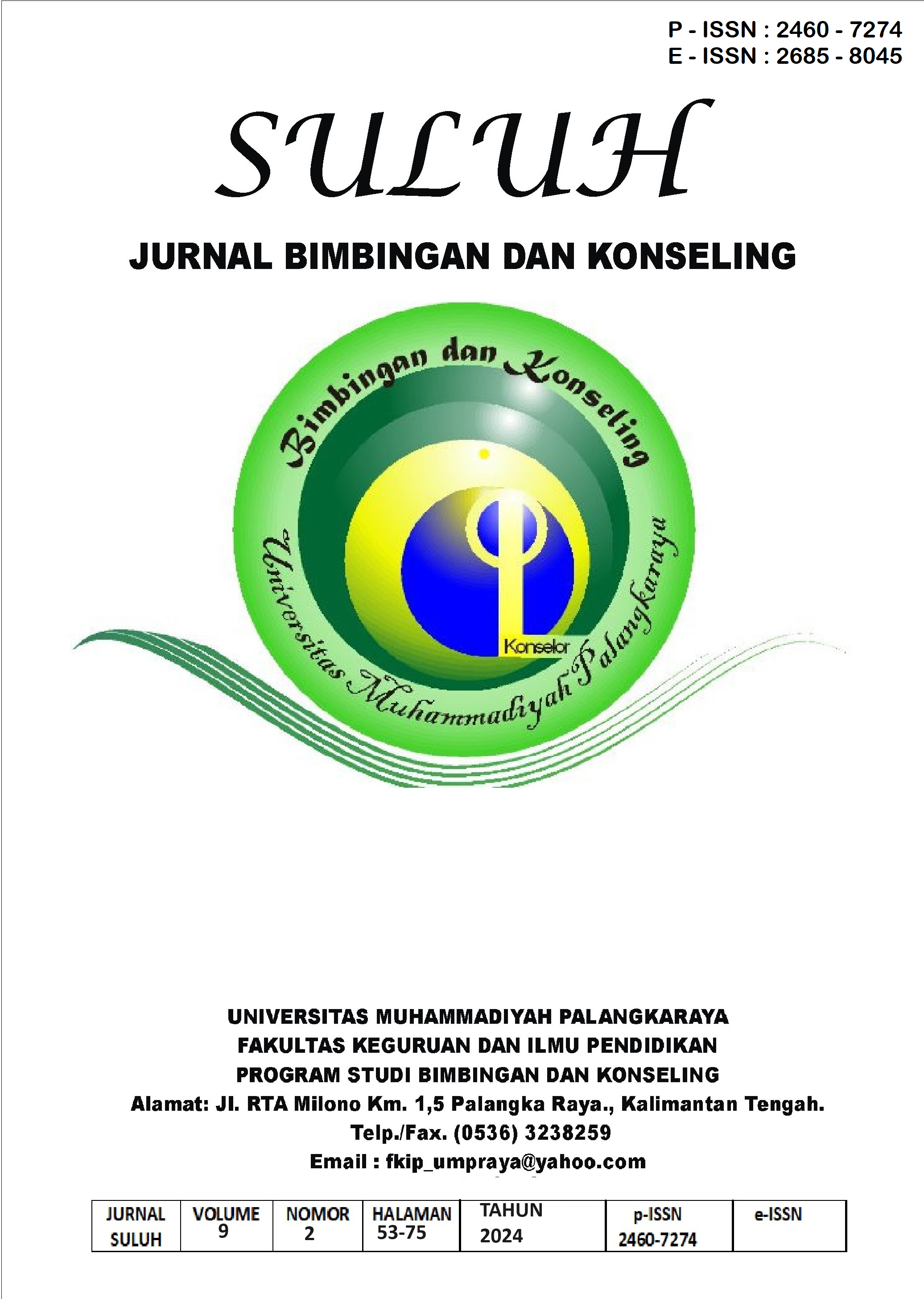Effectiveness of Erikson's Ego Counseling as an Individual Counseling Approach
Main Article Content
Abstract
Erikson's ego counseling is an individual counseling approach based on Erikson's theory of psychosocial development. This approach views that individuals develop through eight stages of ego development. The goal of Erikson's ego counseling is to help clients achieve ego integrity by overcoming psychosocial crises at each stage of development. This research aims to analyze the effectiveness of Erikson's ego counseling as an individual counseling approach through a literature review. The method used is a systematic literature review of previous research on the application and effectiveness of Erikson's ego counseling. The results of the study show that Erikson's ego counseling is effective in helping clients overcome problems in achieving developmental tasks, identity crises, career stagnation, and other psychosocial problems. Erikson's ego counseling has also been proven to be able to increase the achievement of ego integrity. In conclusion, Erikson's ego counseling is an effective individual counseling approach based on the literature review conducted.
Downloads
Article Details

This work is licensed under a Creative Commons Attribution-ShareAlike 4.0 International License.
All rights reserved. This publication may be reproduced, stored in a retrieval system, or transmitted in any form or by any means, electronic, mechanical, photocopying, recording.
References
VERA, N. A. (2020). Development of A Group Format Ego Counseling Model To Improve Understanding Of Ego Identity.
Hafiva, W., Yusri, F., & Aprison, W. (2020). The Effectiveness of the Ego Approach to Increase Student Self-Resilience at SMAN 2 Padang Panjang. Islamic Counseling: Journal of Islamic Counseling, 4(2), 223-236.
Corey, G. (2013). Theory and practice of counseling and psychotherapy. Cengage Learning.
Maree, J. G. (2022). Erik Erikson's theory of psychosocial development: a critical review. The influence of theorists and pioneers on childhood education, 119-133.
Branje, S., De Moor, E. L., Spitzer, J., & Becht, A. I. (2021). Dynamics of identity development in adolescence: a decade-long review. Journal of Research on Adolescence, 31(4), 908-927.
Gladding, S. T. (2018). Counseling: A comprehensive profession. Pearson.
McLeod, S. A. (2018). Erik Erikson's stages of psychosocial development. Simply Psychology.
Suvilehto, P., Kerry-Moran, K. J., & Aerila, J. A. (2019). Supporting children's social and emotional growth through developmental bibliotherapy. Stories in children's lives: contributions of the narrative mode to early childhood development, literacy, and learning, 299-314.
Sharf, R. S. (2012). Theories of psychotherapy & counseling: Concepts and cases. Cengage Learning.
PUTRIANI, Lisa, et al. APPROACHES IN COUNSELING. Tahta Media Publisher, 2023.
Gultom, Y. O., Agustin, D. V., Azzahra, A. N., Harahap, N. H., Sari, Y. L., Pratama, A. W., ... & Adynata, D. (2023). APPLICATION OF COUNSELING MODELS (THEORY AND PRACTICE). Tahta Media Publisher.
Maisyaroh, E. (2024). IMPLEMENTATION OF COUNSELING GUIDANCE PRINCIPLES IN THE IMPLEMENTATION OF COUNSELING FOR STUDENTS. Scientific Journal of Research Student, 1(3), 808-816.
Puluhulawa, M., Djibran, M. R., & Pautina, M. R. (2017). Group guidance services and its effect on students' self-esteem. In Proceeding of National Guidance and Counseling Seminar and Workshop 2017 (pp. 301-310).

